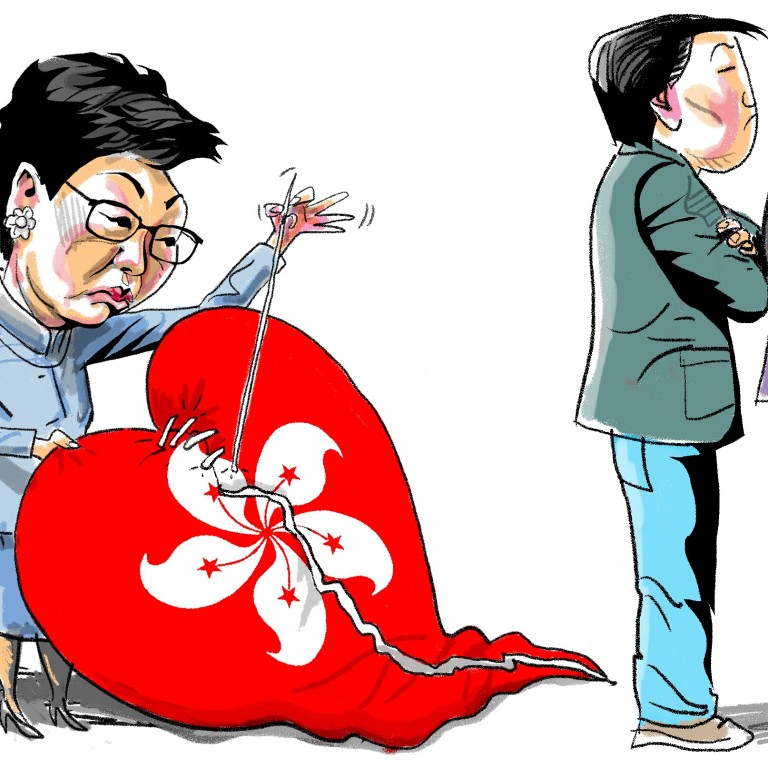
Hong Kong extradition protesters made five demands of Carrie Lam. Believe it or not, they have been heard
- The government has responded to most demands, and even taken a step back on some. Protesters should see that the government is trying to meet them halfway, and give reconciliation a chance
Only a radical shake-up in governance can save Hong Kong
This will not appease everyone. Already, there are some still saying this is not enough. But, in all fairness, it cannot be said the government has not responded. Perhaps not responded to the full extent desired by those opposing the bill, but in any view, the government had taken a major step back and the “threat” of the bill is no longer there.
Lam has been the only chief executive to have openly apologised to the people of Hong Kong
Those opposing the bill wanted Chief Executive Carrie Lam Cheng Yuet-ngor to resign. Again, to be fair, people have called on each successive chief executive to resign in most if not all of the 22 years since the handover. However, Lam has been the only chief executive to have openly apologised to the people of Hong Kong. Perhaps she has not responded to the fullest extent, as some would like, but it cannot be said she had not at least taken half a step back.
This definition was not invented by the SAR government but inherited from British common law. Hong Kong is not the rest of China. Here, only the legal meaning of an offence is important. The police, as well as Lam, have explained they were referring to people suspected of having committed the crime of rioting, not everyone who had marched peacefully.
That explanation is plainly right as a matter of law. Has Hong Kong deteriorated to a state where the police could not call a crime a crime? In any event, the explanation properly given by both the police and government can fairly be said to be a proper response to the relevant demand.
Why Hong Kong, and others, can’t just go on protesting
The truth of the matter is that, of the five demands, the government has responded to most, and has in fact taken a step back or two on some. Viewed in this light, it is fair to say the government has reached out a hand of conciliation. But reconciliation can only be achieved by both sides.
What more is there to be gained in continuing the current discord? We are already standing on the edge of the abyss of chaos. Our overall interest is, by no exaggeration, hanging in the balance. Is it not time to call a halt to things and give peace a chance?
We all make mistakes and the important thing is that a lesson has been learnt. It is time to heal the wound and look forward. After all, reconciliation is not a sin.
Ronny K. W. Tong, QC, SC, JP, is a former chairman of the Hong Kong Bar Association, a member of the Executive Council and convenor of the Path of Democracy

